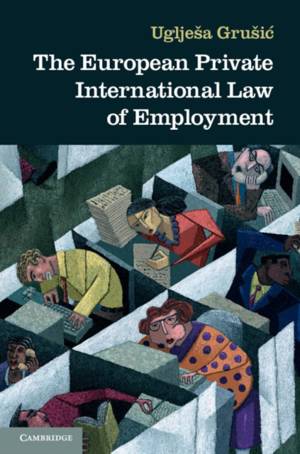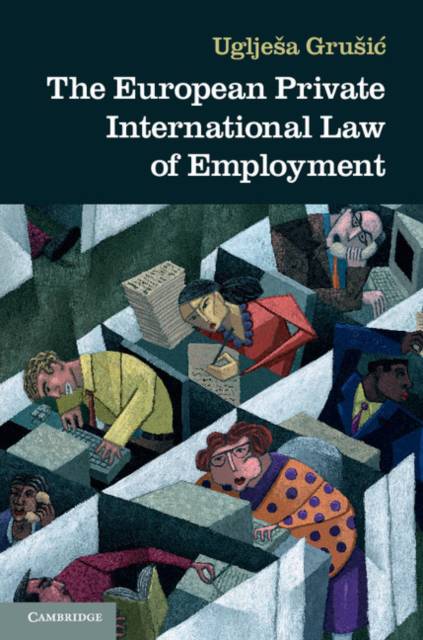
Door een staking bij bpost kan je online bestelling op dit moment iets langer onderweg zijn dan voorzien. Dringend iets nodig? Onze winkels ontvangen jou met open armen!
- Afhalen na 1 uur in een winkel met voorraad
- Gratis thuislevering in België vanaf € 30
- Ruim aanbod met 7 miljoen producten
Door een staking bij bpost kan je online bestelling op dit moment iets langer onderweg zijn dan voorzien. Dringend iets nodig? Onze winkels ontvangen jou met open armen!
- Afhalen na 1 uur in een winkel met voorraad
- Gratis thuislevering in België vanaf € 30
- Ruim aanbod met 7 miljoen producten
Zoeken
€ 201,95
+ 403 punten
Omschrijving
The European Private International Law of Employment provides a descriptive and normative account of the European rules of jurisdiction and choice of law which frame international employment litigation in the courts of EU Member States. The author outlines the relevant rules of the Brussels I Regulation Recast, the Rome Regulations, the Posted Workers Directive and the draft of the Posting of Workers Enforcement Directive, and assesses those rules in light of the objective of protection of employees. By using the UK as a case study, he also highlights the impact of the 'Europeanisation' of private international law on traditional perceptions and rules in this field of law in individual Member States. For example, the author demonstrates that the private international law of the EU is fundamentally reshaping English conflict of laws by almost completely merging the traditionally perceived contractual, statutory and tortious claims into one claim for choice-of-law purposes.
Specificaties
Betrokkenen
- Auteur(s):
- Uitgeverij:
Inhoud
- Aantal bladzijden:
- 382
- Taal:
- Engels
Eigenschappen
- Productcode (EAN):
- 9781107082946
- Verschijningsdatum:
- 28/05/2015
- Uitvoering:
- Hardcover
- Formaat:
- Genaaid
- Afmetingen:
- 152 mm x 229 mm
- Gewicht:
- 675 g

Alleen bij Standaard Boekhandel
+ 403 punten op je klantenkaart van Standaard Boekhandel
Beoordelingen
We publiceren alleen reviews die voldoen aan de voorwaarden voor reviews. Bekijk onze voorwaarden voor reviews.











